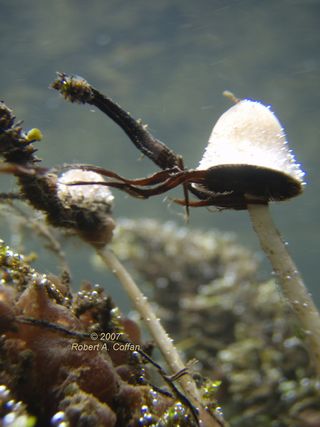'Magic Mushrooms' Could Treat Depression & Addiction

The hallucinogen found in "magic mushrooms" could help treat a variety of psychiatric disorders, including depression, anxiety and even addiction, researchers say.
A new study provides clues on how much of the substance patients could take to get the greatest benefit with the least risk, researchers say.
However, use of the substance, called psilocybin, is not without risk. Its side effects include paranoia and delusions.
Under the second-highest dose given in the study, patients said they had a "mystical" experience that they felt was significantly personal and spiritual, but few noted any side effects. Participants reported improvements in attitude, mood and behavior that were confirmed by their friends and family.
The study was small and much more research is needed to determine exactly how it's working.
And even if the drug becomes available for prescription, it should always be given under the supervision of properly trained personnel, the researchers said.
"The model of it would never be, 'take two of these and call me in the morning,'" said study researcher Matthew Johnson, an assistant professor of psychiatry and behavioral sciences at Johns Hopkins University. "Someone having an adverse reaction might be so scared they might run across a highway and be hit by a car," he said. "We wouldn't encourage anyone to do these things in a non-supervised context."
Sign up for the Live Science daily newsletter now
Get the world’s most fascinating discoveries delivered straight to your inbox.
Magic mushrooms
Psilocybin is mainly being considered as a treatment for terminally ill patients who experience depression and anxiety, and for those with hard-to-treat addictions, including alcoholism, Johnson said.
Psychiatric research on hallucinogens, including LSD, was conducted in the 1950s through the 1970s. However, it was stopped after recreational use of these drugs led to cases of drug abuse and the drugs were perceived as a public health concern, said Dr. Charles Grob, of Harbor-UCLA Medical Center in Torrance, Calif, who has conducted research on psilocybin, but was not involved in the new study.
It has only been over the last decade that scientists have resumed the research.
In the new study, 18 healthy volunteers received four doses of the drug during separate, eight-hour sessions.
At the second-highest dose, two-thirds of the patients reported a "mystical" experience, the type believed to have the greatest long-term psychiatric benefits. Just 5.6 percent reported experiencing extreme fear or anxiety. At the highest dose, the number experiencing unwanted side effects jumped to 33 percent, the researchers said.
All side effects were short-lived and did not harm the volunteers after the session, the researchers said.
"They're demonstrating that, under optimal conditions, they can reliably induce mystical-level experiences, which in and of themselves appear to have a therapeutic potential," Grob said.
One year later, 83 percent said these mystical experiences increased their well-being and life satisfaction moderately or very much, the researchers said. Close to 90 percent reported changes in their behavior, including improved relationships with family and increased devotion to spiritual practice.
Why does it work?
Researchers aren't sure how the drug works. The model seems quite different from that of most modern psychiatric medications, which are taken regularly.
The sessions may change the way people think about themselves and the world around them, and may give their lives more meaning, Johnson said.
The therapy may work through the same mechanisms, regardless of whether it's being used on a terminally ill patient or one with an addiction to alcohol. "There's something very important about the person recognizing fundamental meaning in their life," Johnson said.
Grob agreed the benefit seems to come from restoring a sense of purpose.
When you have a terminal illness "That thread of meaning that has carried you through your life…that often evaporates," Grob said. "Having a profound experience seems to be able to re-infuse people with that meaning."
Pass it on: Hallucinogenic drugs, given under supervision, may help treat anxiety, depression and addiction.
This story was provided by MyHealthNewsDaily, sister site to LiveScience. Follow MyHealthNewsDaily staff writer Rachael Rettner on Twitter @RachaelRettner.

Rachael is a Live Science contributor, and was a former channel editor and senior writer for Live Science between 2010 and 2022. She has a master's degree in journalism from New York University's Science, Health and Environmental Reporting Program. She also holds a B.S. in molecular biology and an M.S. in biology from the University of California, San Diego. Her work has appeared in Scienceline, The Washington Post and Scientific American.
